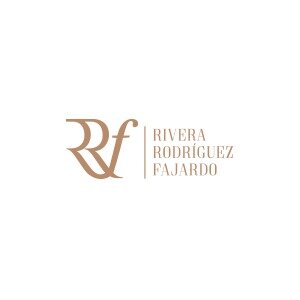Best Art & Cultural Property Law Lawyers in San Salvador
Share your needs with us, get contacted by law firms.
Free. Takes 2 min.
List of the best lawyers in San Salvador, El Salvador
About Art & Cultural Property Law in San Salvador, El Salvador
Art & Cultural Property Law in San Salvador, El Salvador, encompasses a wide range of legal issues related to the creation, ownership, sale, protection, and restitution of cultural properties and artworks. This field of law is designed to preserve the nation's cultural heritage, ensure the protection of intellectual property rights, and facilitate lawful exchanges of cultural items both within the country and internationally. El Salvador has specific regulations to safeguard its rich cultural heritage, including laws that govern archeological sites, historical monuments, and other cultural assets.
Why You May Need a Lawyer
There are many situations where individuals or organizations may require legal assistance in the realm of Art & Cultural Property Law:
- Purchasing Artworks: Legal counsel can ensure that transactions comply with local and international laws, and verify the provenance of artworks.
- Intellectual Property Rights: Artists may need help protecting their works from unauthorized use or reproduction.
- Disputes: Conflicts over ownership, authenticity, or the sale of cultural properties can require mediation or litigation.
- Restitution: Counsel can aid in reclaiming cultural objects that have been unlawfully removed from the country.
- Compliance: Ensure adherence to laws when dealing with cultural artifacts, especially concerning exports and imports.
Local Laws Overview
Art & Cultural Property Law in San Salvador is governed by various national laws designed to protect cultural heritage:
- Protection of Cultural Heritage Act: This law defines cultural property and outlines measures for its protection and preservation.
- Intellectual Property Law: Protects the rights of artists regarding the use and reproduction of their works.
- Export and Import Regulations: Govern the movement of cultural property across borders to prevent illegal trafficking.
- Restitution Policies: Facilitate the return of culturally significant items to their rightful owners or nations.
Frequently Asked Questions
What is considered cultural property?
Cultural property includes artifacts, artworks, monuments, and sites of historical, artistic, or cultural significance.
Do I need a permit to export artwork from El Salvador?
Yes, you typically need a permit to export cultural property to ensure compliance with laws aimed at preventing illegal trafficking.
How can I verify the authenticity of an artwork?
Consulting with experts or legal professionals who specialize in art authentication can help verify artwork's provenance and authenticity.
What should I do if I discover an archaeological artifact?
Immediately report your find to local authorities to ensure the lawful and respectful handling of cultural heritage.
How do laws protect artists' intellectual property in El Salvador?
Intellectual Property Law grants artists exclusive rights over their creations, preventing unauthorized use and reproduction.
What actions can be taken in case of art theft?
Report the theft immediately to law enforcement and consult a lawyer to initiate recovery procedures and address legal ramifications.
Can cultural property be restituted to rightful owners?
Yes, restitution processes exist to return cultural property to rightful owners if it was wrongfully removed or transferred.
Are there legal protections for digital art and NFTs?
Digital art and NFTs fall under intellectual property protection, just like traditional art forms, safeguarding the creator's rights.
How is cultural property law enforced in San Salvador?
Enforcement is typically the responsibility of cultural institutions and the government, with laws promoting the preservation and protection of cultural assets.
What legal consequences exist for damaging cultural heritage sites?
Penalties can include fines, imprisonment, and the obligation to fund restoration efforts, depending on the severity of the offense.
Additional Resources
For further information, consider reaching out to the following:
- Cultural Heritage and Arts Institutions: Organizations like the National Council for Culture and the Arts (CONCULTURA) can provide insights and assistance.
- Legal Aid Services: Firms specializing in cultural property law can offer legal counsel and representation.
- Governmental Bodies: The Ministry of Culture oversees the preservation of national heritage and is a valuable resource.
Next Steps
If you require legal assistance in Art & Cultural Property Law, consider these steps:
- Consult with Specialists: Seek out lawyers or law firms specializing in art and cultural property to discuss your situation.
- Gather Documentation: Collect all relevant documentation, including proof of ownership, provenance records, and any legal notices.
- Understand Your Rights: Gain a clear understanding of your rights and obligations under local and international laws.
- Stay Informed: Keep up to date with any changes in laws or regulations that might affect your case.
Lawzana helps you find the best lawyers and law firms in San Salvador through a curated and pre-screened list of qualified legal professionals. Our platform offers rankings and detailed profiles of attorneys and law firms, allowing you to compare based on practice areas, including Art & Cultural Property Law, experience, and client feedback.
Each profile includes a description of the firm's areas of practice, client reviews, team members and partners, year of establishment, spoken languages, office locations, contact information, social media presence, and any published articles or resources. Most firms on our platform speak English and are experienced in both local and international legal matters.
Get a quote from top-rated law firms in San Salvador, El Salvador — quickly, securely, and without unnecessary hassle.
Disclaimer:
The information provided on this page is for general informational purposes only and does not constitute legal advice. While we strive to ensure the accuracy and relevance of the content, legal information may change over time, and interpretations of the law can vary. You should always consult with a qualified legal professional for advice specific to your situation.
We disclaim all liability for actions taken or not taken based on the content of this page. If you believe any information is incorrect or outdated, please contact us, and we will review and update it where appropriate.









